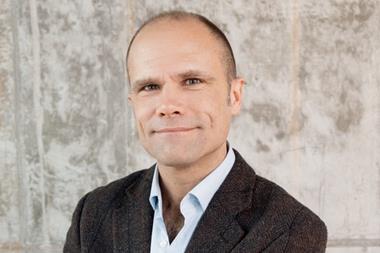Business continuity is no different from any other discipline, it constantly looks to improve and to become more professionally accepted. It is not legally enforceable and so must gain favour through sound business argument. To this end its progress has been steady rather than dramatic. The need to change this perspective is one of the challenges facing industry bodies.
Momentum has been gained following recent events, and the eagerness of business to listen to the business continuity argument has undoubtedly increased, although not as significantly as some observers say. So what are industry bodies preaching? And are they representing BC professionals in a manner that will be beneficial to the industry as a whole?
One of the biggest surprises to those outside the industry, and to some within, is that the UK Survive (www.survive.com) exhibition has been cancelled for 2002. In many respects the timing is unfortunate. Late last year Survive restructured its management team under the guidance of publisher Rod Fountain, who became chief executive of Survive Holdings.
However, although Survive is one of the oldest user groups within the industry, I believe a shake-up and re-focus will do it no harm whatsoever. Every industry body needs to self-evaluate from time to time if it is to continue to reflect the ideals of its membership. This is confirmed by Rod Fountain's comments in December 2001: "We have started a programme of extensive research among our members and the wider business community, and we are seeking the involvement of everyone who has an interest in the future development of the business continuity and disaster recovery industry."
Recent murmurings from Survive are positive. At a meeting in March 2002, Fountain stated: "A growing band of enlightened companies are asking us for help, realising that even if they do have some form of business continuity plan in place, it is unlikely to be robust enough to be of much use in a real crisis." Fountain's comments should ring a few alarm bells if we look at the recent exploits of Enron and Worldcom.
Whether Survive can exploit the lack of confidence caused by 'corporate corpses' remains to be seen, but I believe there is a great opportunity for it to ram home its message. From my perspective, the jury is out on Survive until the new management team has had time to make an impact.
Some of the more substantial and proactive work being done within the industry can be attributed to the Business Continuity Institute (www.thebci.org). It is working closely with the British Standards Institute (BSI) to put forward a proposal to develop a Publicly Available Specification (PAS) for Business Continuity Management (BCM). The intention is for the BCI to take a lead role in the development of the PAS, which will be a precursor to a full standard – a template that has been needed for a long time. This new framework for business continuity professionals is scheduled to be available by the end of the year. To me this seems like the only way forward. Without a common template, business continuity falls between a rock and a hard place.
John Sharp, chief executive officer of the BCI, explains the reasoning for the development: "The BCI is convinced that the time is right to begin the development of an international standard for BCM. The lack of benchmarking within the industry is a worry, and is most probably caused by the lack of an industry-accepted template. Our ultimate aim is to create an ISO standard. As a first step we have, in conjunction with the insurance and BCM industry organisations, issued the Business Guide to Continuity Management and developed a BCM evaluation tool."
The work in progress by the BCI is admirable. The establishment of a finance sector group working alongside the FSA to develop a BCM process and a series of compliance measures is where the basis for the PAS is expected to originate. The sooner this process is completed the better.
The BCI is also talking to the Civil Contingencies Secretariat (CCS) in UK Government – an organisation set up in the wake of the fuel protests and foot-and-mouth crisis – about resilient communities and the need for a common glossary of terms. In June 2002, the CCS stated that it was still working on a 'fundamental re-examination of the assumptions underlying our contingency planning arrangements at all levels'. This comment demonstrates to me the enormous opportunity the BCI has to wave the flag for the industry and to make real inroads in developing a common procedure.
Since last September, there have been 25 cabinet committee meetings, more than 100 policy papers, and a review of countless other security and civil defence plans and procedures. The magnitude of the task is now apparent to the Government; what the BCI has to ensure is that this exercise does not become a charade.
To be fair, this may not be easy. Commenting on the CCS, and its various subcommittees, Ian Hoult, emergency planning officer for Hampshire county council, said: "To those of us outside London, to be honest, it looks a right muddle."
On the whole the work of the BCI confirms many of the beliefs that the majority of BC professionals hold; that without standards in place the discipline can never be fully measured and audited, and without measurability the profession as a whole will never be taken seriously.
Dave Birch is director of operations at BT CommSure,
www.bt.com/commsure



















